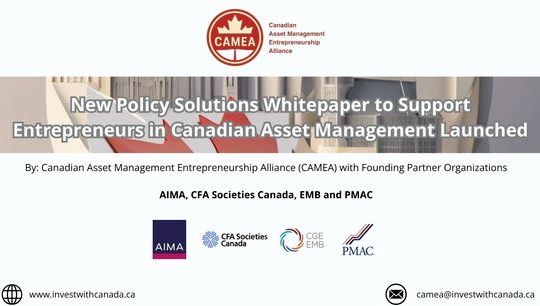Patience and persistence: soft skills vital in hard work of capital-raising
Published: 17 May 2022
Ortwin Gierhake, Director, Prime Brokerage Sales, Cowen, Hong Kong shares his top five tips for emerging managers on what it takes to raise capital. Here, he leads a discussion with two experts in this field, Jeb Altonaga, Founder of Clearglass Capital Partners who cut his teeth at Pinyin Capital Management in Hong Kong, and Amy Cheung from Cowen’s Capital Introduction team. Amy joined Cowen last June after three years at an Asian micro hedge fund.
Launching a hedge fund is hard. Before beginning to raise capital, managers spend countless hours and significant sums setting up the business, refining strategy and drawing up a killer marketing pitch.
These are essential steps but, alone, will not persuade allocators to write a check. Soft skills are arguably as important as the emerging manager’s hard work.
1. Persistence and patience
Raising capital requires persistence. Investors need to get to know and trust the new manager. That takes time.
“People underestimate what the timeline is going to be to raise capital,” Altonaga said. “In the early days, it’s more the relationship and the trust than the strategy and the performance.”
Altonaga said for one capital raising, he attended 109 meetings over 45 days, spent many nights on planes, and eventually lured 10 investors.
Getting in front of potential investors remains crucial. Nowadays, he might send out 6,000 emails and make 3,000 calls to garner 100 expressions of interest. That could lead to 20 meetings, seven second meetings and ultimately three or four investors. That’s persistence.
2. Communicate – but don’t be annoying
“It is critical to have someone to coordinate the follow-ups,” said Cheung, referring to keeping track of meetings, due diligence and other steps. This could require an investor relations (IR) professional or, as an alternative, the CIO and COO could share the task.
Altonaga suggested that, in the absence of an IR professional, it would be helpful to have a CRM (customer relationship management) system in place to keep things organised.
Who should be the face of the fund? For Cheung, it is initially the CIO, especially pre-launch, who should be highly visible, including at conferences. She also said it was important the CIO put money into the fund to demonstrate commitment to the strategy.
Altonaga said that once the fund is launched, running the money should be the CIO’s focus, with other issues handled by whoever is managing IR.
And don’t just report the good. People make mistakes and investors are interested to see what lessons were learned.
“But investors shouldn’t have easy access where they pick up the phone and the CIO is readily available. Easy access impedes that person’s stature,” Altonaga added.
Cheung cautioned against a manager bombarding the investor with emails. “It’s knowing the fine line between being annoying and being proactive.”
For Altonaga, it was important for allocators to know they could share a meal with the fund team without it being contentious or awkward.
“Call that EQ (emotional intelligence) if you want. There has to be a balance between fostering relationships and having the technical skills to develop what the strategy is and how it works. That comes with an understanding of what’s going on in the industry and being able to talk to in a common language that isn’t riddled with jargon,” he said.
3. Know your target audience
Both experts said the first place to seek investors and generate momentum is among family, friends and ex-colleagues. Asia had more billionaires than North America or Western Europe in 2020, according to Swiss bank UBS, and Cowen has strong links with family offices.
Cheung said that with a fund of $100-200 million, it might be too early to approach a university endowment, though some deliberately sought out emerging managers. Altonaga said that if a manager did secure funding from one endowment, others could follow suit.
But what if you do everything right and investors’ check books stay shut?
“It’s persistence and time. And is it your day? Long short equity managers have not been in vogue for years. They have wait for their time to shine. That’s about knowing the market,” Altonaga said.
For Cheung, the answer is: “Patience. And knowing what’s going on in your investors’ portfolio. Are they seeking new ideas? Are they getting more capital? The answers to those questions will tell you whether they are likely to top up the money.”
4. Be ready to “scale up”
Even in the early days, this deserves attention and be mindful that later-stage investors will inevitably scrutinise who is already invested.
“I don’t think there is one pedigreed investor that didn’t require that information through due diligence. They looked at the liquidity and reputational profiles of those investors and made a decision based on that,” Altonaga said.
Cheung said having only high net-worth individuals or fund of funds investors might not be attractive for institutional investors averse to “fast money” and said managers seeking to scale up should diversify to bring other investors on board.
As funds grow and diversify their investor base, they may encounter demand for more ESG investment. While this is increasingly in focus in the US and Europe, Cheung said some Asian allocators are ahead of their regional peers.
5. Help is available
Some aspects of capital-raising can be outsourced, to cap intro teams at prime brokerages such as Cowen, third-party marketers and advisory firms. Cheung said marketing specialists could help, for example, if an Asian fund wanted to target investors in another geography.
Altonaga cautioned that third-party marketers can be very selective in which funds they work with, while Cheung said using cap intro should not breed complacency.
“We open the doors for you and the rest is in your hands.”
A prime broker with Cowen’s experience and local contacts can assist on every step of the journey of a new fund launch.








